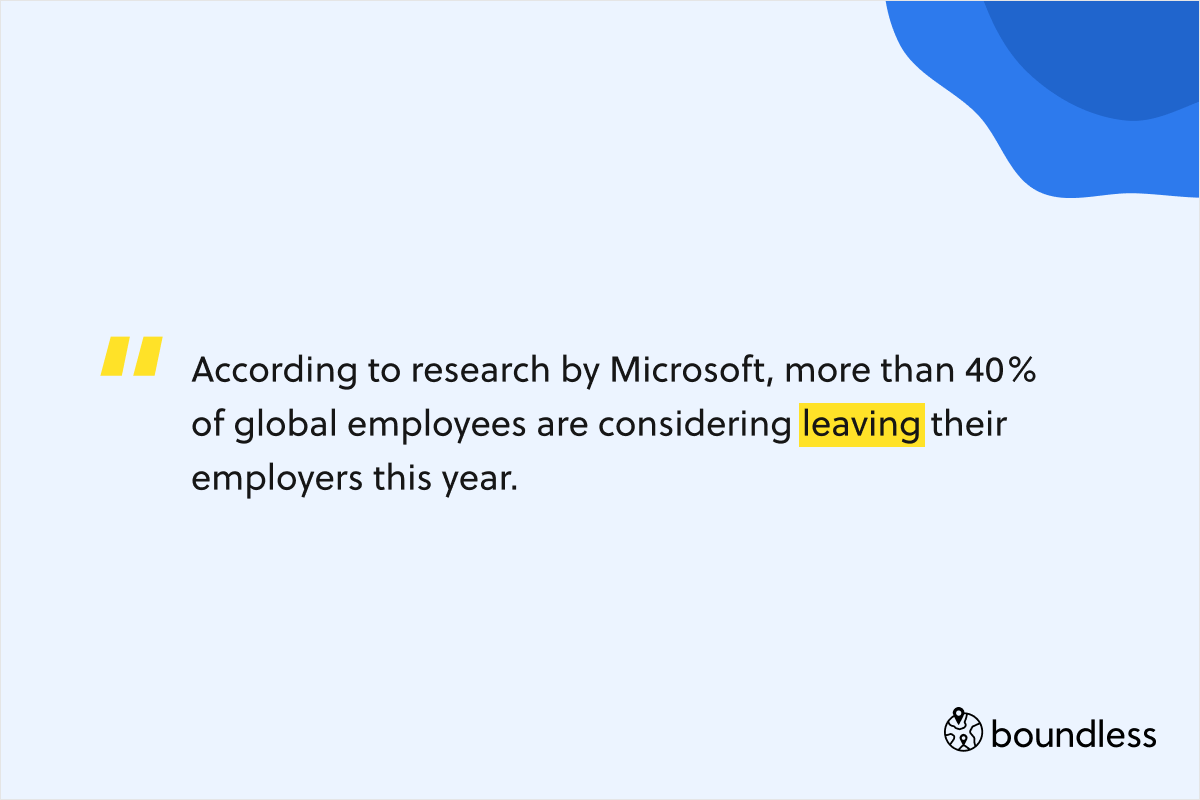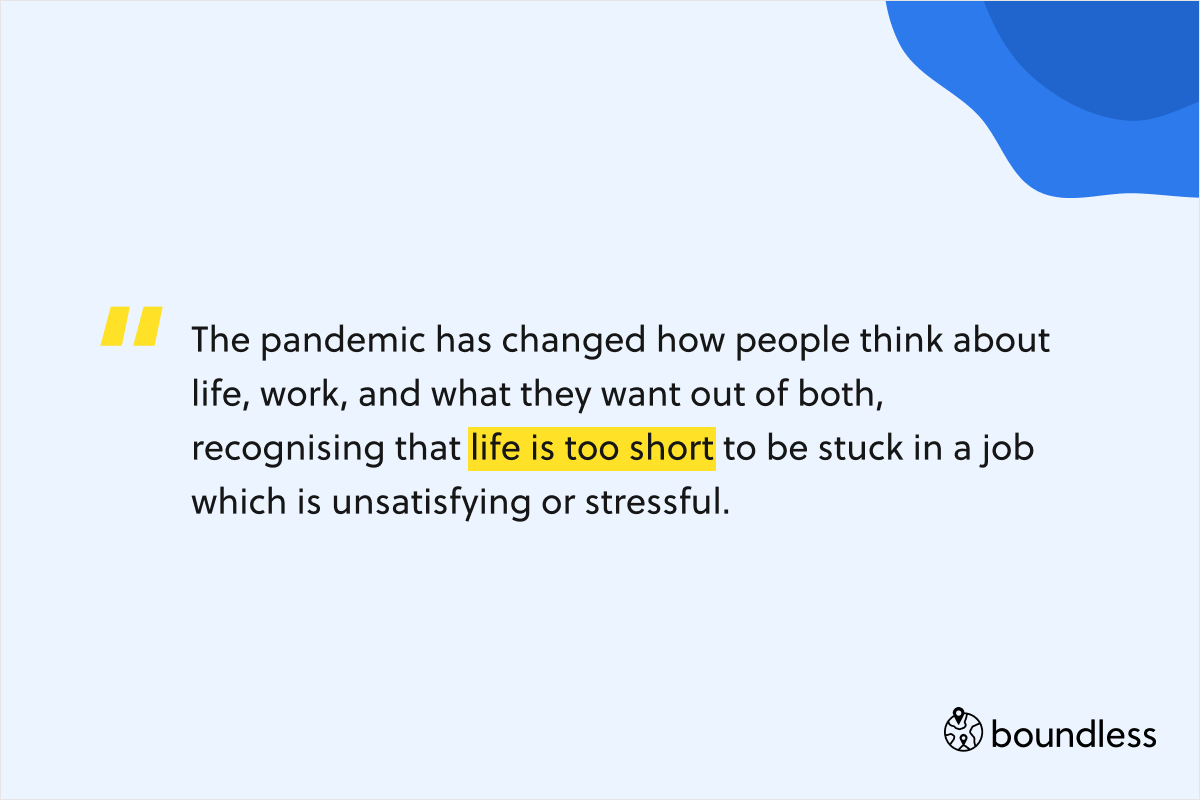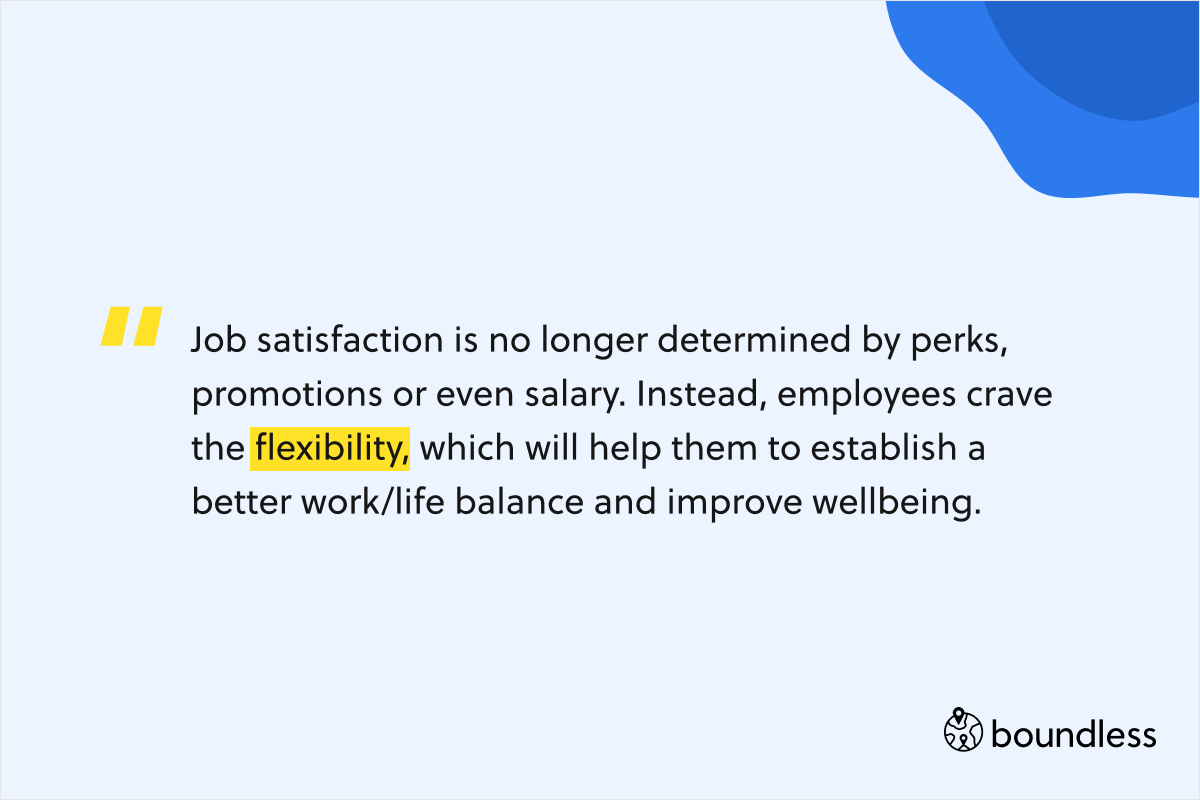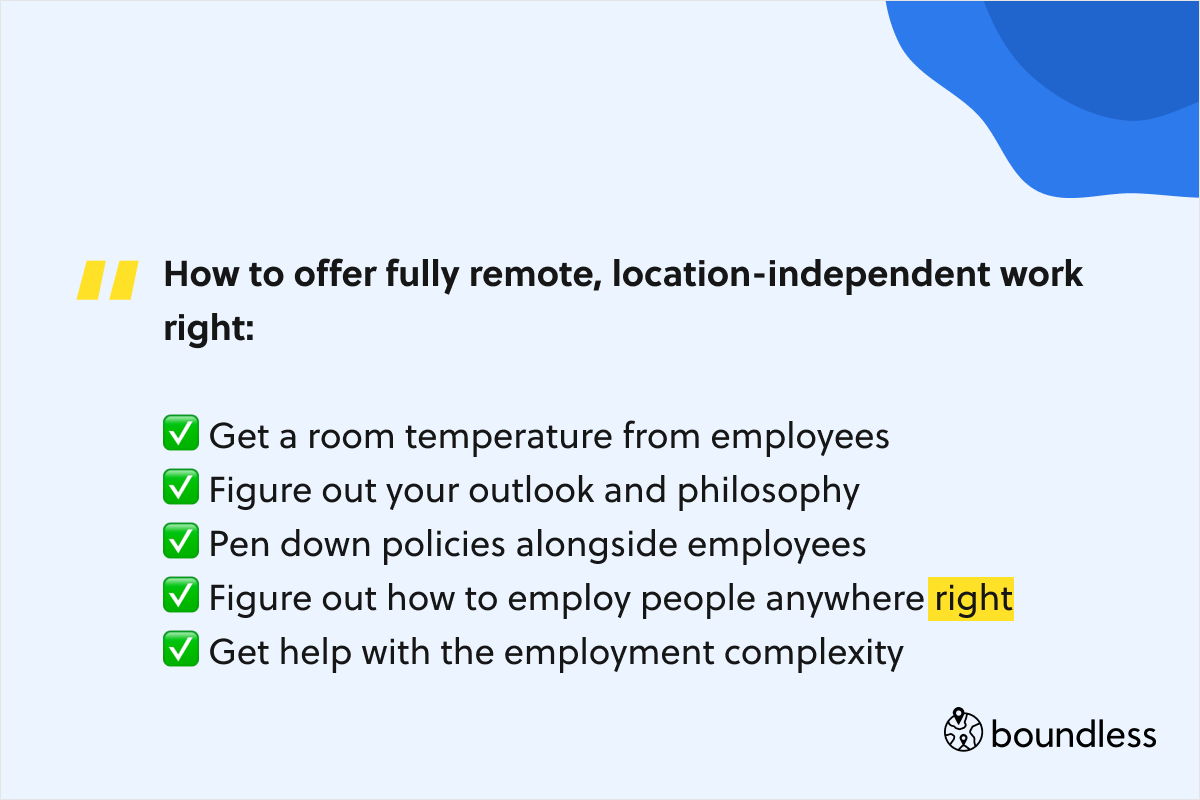The way we work is changing more rapidly than ever. As 2021 draws to an end, we thought we’d take the opportunity to reflect on the moments that have had the greatest bearing on the global employment.

All over the world, Covid-19 has led to what's been dubbed the Great Resignation: millions of people, from frontline workers to senior executives, voluntarily calling time on their jobs.
According to research by Microsoft, more than 40% of global employees are considering leaving their employers this year. As well as significantly disrupting ‘business as usual’, experts warn that resignations en-masse will have considerable cost implications for employers.

There is plenty of discussion as to why swathes of people are quitting their jobs. What’s increasingly clear is that the pandemic has changed how people think about life, work, and what they want out of both. More employees now recognise that life is too short to be stuck in a job which is unsatisfying or stressful. And as they seek better balance in their lives, many people are taking the bold step of moving location – abandoning cramped urban hubs in search of more space and lower rents – or moving countries, to change their lifestyle or to be closer to loved ones after a significant time apart.
As we can see from the alarming resignation numbers being reported across the globe, this trend is already alive and happening today. And it’s quickly creating a competitive divide within the corporate world – between those businesses that offer location-flexible working, and those that don’t.

To adequately respond to the challenges ahead, employers must understand the fundamental change in priorities for many of their staff. Job satisfaction is no longer determined by perks, promotions or even salary. Instead, employees crave the flexibility and support which will help them to establish a better work/life balance and take care of their wellbeing. And top of the list is wanting the freedom to choose where they work from.
Indeed, the Covid-induced realisation that most knowledge worker jobs can be done from anywhere is impacting retention across the board. Even with 'top tier’ employers, formerly loyal employees are showing themselves willing to jump ship in search of better location flexibility.
Despite the mass remote working ‘experiment’ of the last eighteen months, a lot of firms are still stuck between old and new worlds when it comes to flexible working. These companies want to keep their staff engaged and loyal, but they’re filling their policies with restrictive caveats – for example, Siemens’ remote work policy mandates days spent in the corporate HQ each week, or limiting the geographic radius in which their employees can work remotely.

While others, like Spotify, are offering the promise of total work-anywhere flexibility to appease workers, they too are creating caveat-tastic policies, leaving many countries out of bounds because of tricky-to-navigate employment legislation, payroll issues and local taxation.
Finally, there’s the problem of equity, with firms allowing some but not all workers to permanently break from the mothership. There’s a real danger that divisions and feelings of unfairness will be created if flexible working opportunities aren’t open to all.
So, what concrete steps can businesses take to get fully remote, location-independent work right and avoid a potential exodus?
There is no shortage of employee surveys that look into the sentiments people have about location and how compensation is affected by it. A recent survey suggested that two-thirds of US knowledge workers would be willing to take a 5% reduction in pay to work entirely remotely. And a YouGov survey shows almost half of UK employees believe they could do their job just as well abroad. While there is a clear indication from those, to know the true sentiments and expectations in an organisation, it will be best to ask directly. Organisations need to understand how and where employees want to work, rather than imposing new working arrangements without consultation. Not only will you know what your employees want, but the bonus is that nothing will make them feel quite as appreciated and cared for as being asked.

The next step is to take time and figure out all the minutiae that come with flexibility. Being willing, or not, to offer flexibility is only the first step. You will have to figure out your philosophy when it comes to compensation and benefits - will you offer everyone the same compensation and benefits package, regardless of where in the world they are, will you specify by location, or do something in between? You will have to factor in the fact that employing people in different countries costs differently to you as an employer so thinking about costs will be wise. Putting your philosophy in writing, making it available to everyone and sticking to it is essential.
The next crucial element is to involve employees when shaping future policies. They should be invited to feed into scoping sessions, and to express their views on potential plans from the outset. This isn’t just an issue in relation to the current workforce. Approaches to remote and flexible working are strong indicators of a workplace culture – and job seekers will want to understand what an organisation offers and how these policies were reached. Being seen to be collaborative, rather than mandating preferences, can only enhance an employer brand and make it more appealing to work for.
Equally crucial is ensuring that organisations offering remote-only roles have their legal and contractual commitments covered wherever they operate. The only way to be compliant and meet the statutory requirements in each market is by offering legal full time employment to their workers. When employing team members in other countries, companies need to ensure they’re complying with local employment legislation and properly protecting employee rights. In some territories, employment law and employer obligations can even differ from state to state, creating a minefield for organisations that aren’t on top of the details. Furthermore, in each country, there are obligations on a monthly basis, such as filing and paying taxes, running smooth payroll operations and informing authorities about employment changes.
This stuff is really hard, especially in the context of a high growth organisation with many other demands. It will be easy to lose sight of compliance and doing things right as complexity increases exponentially with each new country. It’s where companies like Boundless can help, serving as the local “employer of record” for each remote-based worker - ensuring their contracts are compliant with local employment laws, processing local payroll, filing employment related tax returns and much more. If you’re ready to offer flexibility by allowing people to work overseas, get started here.

Ultimately, we believe that remote working, and a more flexible approach to location, can stem the Great Resignation tide – allowing employers to show they’re driving real change in order to meet current and future employee needs. Even more promisingly, it may help open the door for people otherwise locked out of the workforce, like parents, carers and those with disabilities. And crucially, once employers get their head around location-independent, remote employment, they suddenly gain access to a vast new global talent pool – which is, of course, great for business.

The way we work is changing more rapidly than ever. As 2021 draws to an end, we thought we’d take the opportunity to reflect on the moments that have had the greatest bearing on the global employment.

Considering employing someone in Canada? To do that compliantly, an employer has a lot of obligations they have to fulfil. Here is a guide to employee rights in Canada to help you understand what you need to comply with.

When you work from the office, a lot of the things you do during the day come automatically to you. As you move to a remote way of work, you will have to evaluate the importance of each thing you and your team do and cut out the fluff.

Considering employing someone in Poland? To do that compliantly, an employer has a lot of obligations they have to fulfil. Continue reading for a full overview of what employing someone in Poland takes and see all the obligations you will have as an employer.

For years employees have been clamouring for more opportunities to work from home; to work overseas; to live a more flexible and balanced life. However, when it comes to being legally employed to do so, things become a lot trickier.

Learning the ropes of managing an international workforce is worth it because of global employment's value to your business. Opening up to cross-border employment helps attract talent, democratises access to well-paid jobs, fosters the well-being of employees, and creates more diverse organisations.